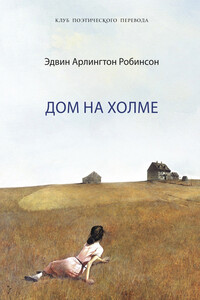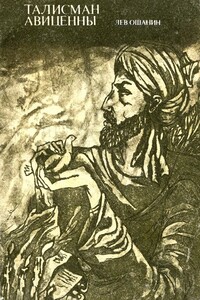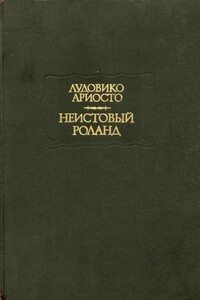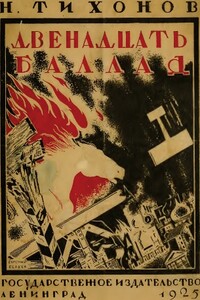Стихотворения - [3]
Прибой гудит за упокой
Пустого обольщенья;
И дом с любовью неживой
Стал ей спасительной норой;
А городок звенит струной
Прямого осужденья.
Мы скажем вам, стуча по лбу,
Все то, что есть на деле,
Как будто чью-нибудь судьбу
Хоть раз понять сумели,
Как будто дар нам вещий дан
И на ее самообман
Ее глазами сквозь дурман
Мы много раз смотрели.
И вот — мы к ним не пристаем;
Уж коль они такие,
Пускай колеблются вдвоем
По прихоти стихии;
Они же, творя всерьез,—
Чета безлиственных берез
Или к пучине под откос
Бредущие слепые.
Перевод А. Сергеева
MORDRED, a fragment
Time and the dark
Had come, but not alone. The southern gate
That had been open wide for Lancelot
Made now an entrance for three other men,
Who strode along the gravel or the grass,
Careless of who should hear them. When they came
To the great oak and the two empty chairs,
One paused, and held the others with a tongue
That sang an evil music while it spoke:
"Sit here, my admirable Colgrevance,
And you, my gentle Agravaine, sit here.
For me, well I have had enough of sitting;
And I have heard enough and seen enough
To blast a kingdom into kingdom come,
Had I so fierce a mind--which happily
I have not, for the king here is my father.
There's been a comment and a criticism
Abounding, I believe, in Camelot
For some time at my undeserved expense,
But God forbid that I should make my father
Less happy than he will be when he knows
What I shall have to tell him presently;
And that will only be what he has known
Since Merlin, or the ghost of Merlin, came
Two years ago to warn him. Though he sees,
One thing he will not see; and this must end.
We must have no blind kings in Camelot,
Or we shall have no land worth harrowing,
And our last harvest will be food for strangers.
My father, as you know, has gone a-hunting."
"We know about the king," said Agravaine,
"And you know more than any about the queen.
We are still waiting, Modred. Colgrevance
And I are waiting."
Modred laughed at him
Indulgently: "Did I say more than any?
If so, then inadvertently I erred;
For there is one man here, one Lancelot,
Who knows, I fancy, a deal more than I do,
And I know much. Yes, I know more than much.
Yet who shall snuff the light of what he knows
To blind the king he serves? No, Agravaine,
A wick like that would smoke and smell of treason."
"Your words are mostly smoke, if I may say so,"
Said Colgrevance: "What is it you have seen,
And what are we to do? I wish no ill
To Lancelot. I know no evil of him,
Or of the queen; and I'll hear none of either,
Save what you, on your oath, may tell me now.
I look yet for the trail of your dark fancy
To blur your testament."
"No, Colgrevance,
There are no blurs or fancies exercising
Tonight where I am. Lancelot will ascend
Anon, betimes, and with no drums or shawms
To sound the appointed progress of his feet;
And he will not be lost along the way,
For there are landmarks and he knows them all.
No, Colgrevance, there are no blurs or fancies
Unless it be that your determination
Has made them for your purpose what they seem.
But here I beg your pardon, Colgrevance.
We reticent ones are given to say too much,
With our tongues once in action. Pray forgive.
Your place tonight will be a shadowed alcove,
Where you may see this knight without a stain
While he goes in where no man save the king
Has dared before to follow. Agravaine
And I will meet you on the floor below,
Having already beheld this paragon-Joseph
Go by us for your clinching observation.
Then we, with a dozen or so for strength, will act;
And there shall be no more of Lancelot."
"Modred, I wish no ill to Lancelot,
And I know none of him," said Colgrevance.
"My dream is of a sturdier way than this
For me to serve my king. Give someone else
That alcove, and let me be of the twelve.
I swear it irks the marrow of my soul
To shadow Lancelot--though I may fight him,
If so it is to be. Furthermore, Modred,
You gave me not an inkling of the part
That you have read off now so pleasantly
For me to play. No, Modred, by the God
Who knows the right way and the wrong, I'll be
This night no poisonous inhabitant
Of alcoves in your play, not even for you.
No man were more the vassal of his friend
Than I am, but I'm damned if I'll be owned."
In a becoming darkness Modred smiled
Away the first accession of his anger.
"Say not like that," he answered, musically.
"Be temperate, Colgrevance. Remember always
Your knighthood and your birth. Remember, too,
That I may hold him only as my friend
Who loves me for myself, not for my station.
We're born for what we're born for, Colgrevance;
And you and I and Agravaine are born
To serve our king. It's all for the same end,
Whether we serve in alcoves, or behind
A velvet arras on another floor.
What matters it, if we be loyal men--
With only one defection?"
"Which is--what?"
Said Agravaine, who breathed hard and said little,
Albeit he had no fame abroad for silence.
Delay--procrastination--overcaution--
Or what word now assimilates itself
The best with your inquiring mood, my brother.
These operations that engage us now
Were planned and executed long ago,
Had I but acted then on what was written
No less indelibly than at this hour,

Сборник знакомит читателей с творчеством американского поэта Эдвина Арлингтона Робинсона. Переводы были выполнены для творческого вечера «Клуба поэтического перевода» (структурного подразделения ГОНЭФ «Языковая среда»), прошедшего 21 декабря 2014 года в секторе иностранной литературы МУК ЦБС г. Рыбинска БИЦ «Радуга».«Клуб поэтического перевода» был создан в 2012 году по инициативе заведующей сектора иностранной литературы БИЦ «Радуга» Алевтины Антиповой и кандидата филологических наук Алексея Чернышева.

Роман в балладах повествует о жизни самого известного и влиятельного ученого, врача и философа средневекового исламского мира Ибн-Сины (Авиценны).

«Неи́стовый Рола́нд» или «Неистовый Орла́ндо» (итал. Orlando furioso) — рыцарская поэма итальянского писателя Лудовико Ариосто, оказавшая значительное влияние на развитие европейской литературы Нового времени. Самая ранняя версия (в 40 песнях) появилась в 1516 году, 2-е издание (1521) отличается лишь более тщательной стилистической отделкой, полностью опубликована в 1532. «Неистовый Роланд» является продолжением (gionta) поэмы «Влюблённый Роланд» (Orlando innamorato), написанной Маттео Боярдо (опубликована посмертно в 1495 году)

В книге рассказывается история главного героя, который сталкивается с различными проблемами и препятствиями на протяжении всего своего путешествия. По пути он встречает множество второстепенных персонажей, которые играют важные роли в истории. Благодаря опыту главного героя книга исследует такие темы, как любовь, потеря, надежда и стойкость. По мере того, как главный герой преодолевает свои трудности, он усваивает ценные уроки жизни и растет как личность.

В книге рассказывается история главного героя, который сталкивается с различными проблемами и препятствиями на протяжении всего своего путешествия. По пути он встречает множество второстепенных персонажей, которые играют важные роли в истории. Благодаря опыту главного героя книга исследует такие темы, как любовь, потеря, надежда и стойкость. По мере того, как главный герой преодолевает свои трудности, он усваивает ценные уроки жизни и растет как личность.

В книге рассказывается история главного героя, который сталкивается с различными проблемами и препятствиями на протяжении всего своего путешествия. По пути он встречает множество второстепенных персонажей, которые играют важные роли в истории. Благодаря опыту главного героя книга исследует такие темы, как любовь, потеря, надежда и стойкость. По мере того, как главный герой преодолевает свои трудности, он усваивает ценные уроки жизни и растет как личность.
